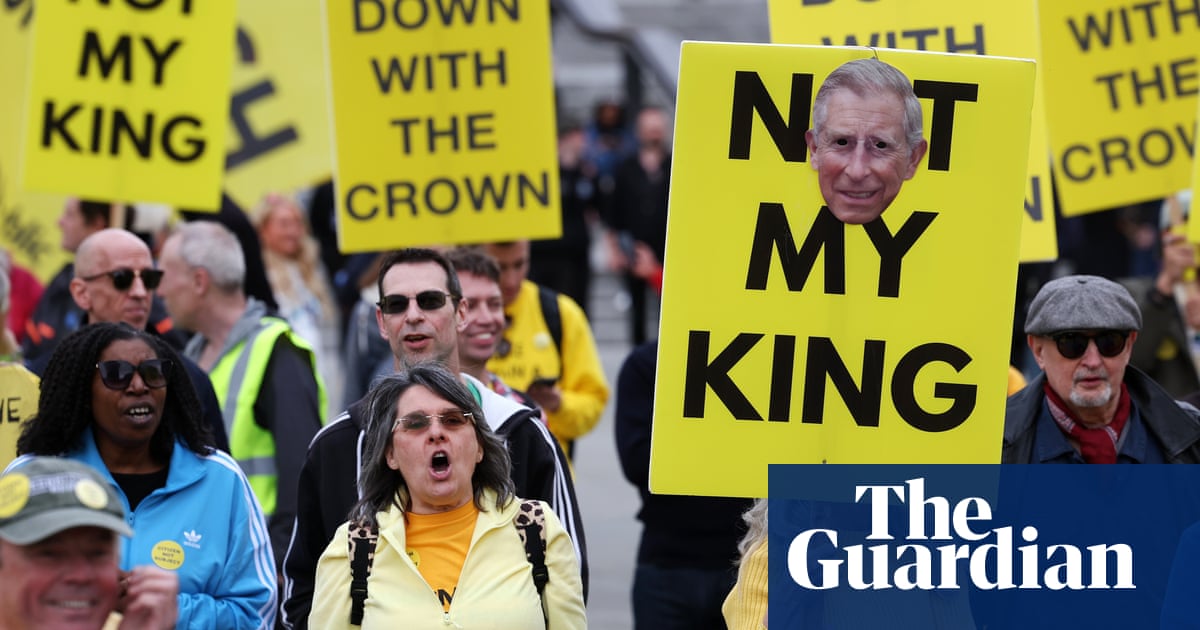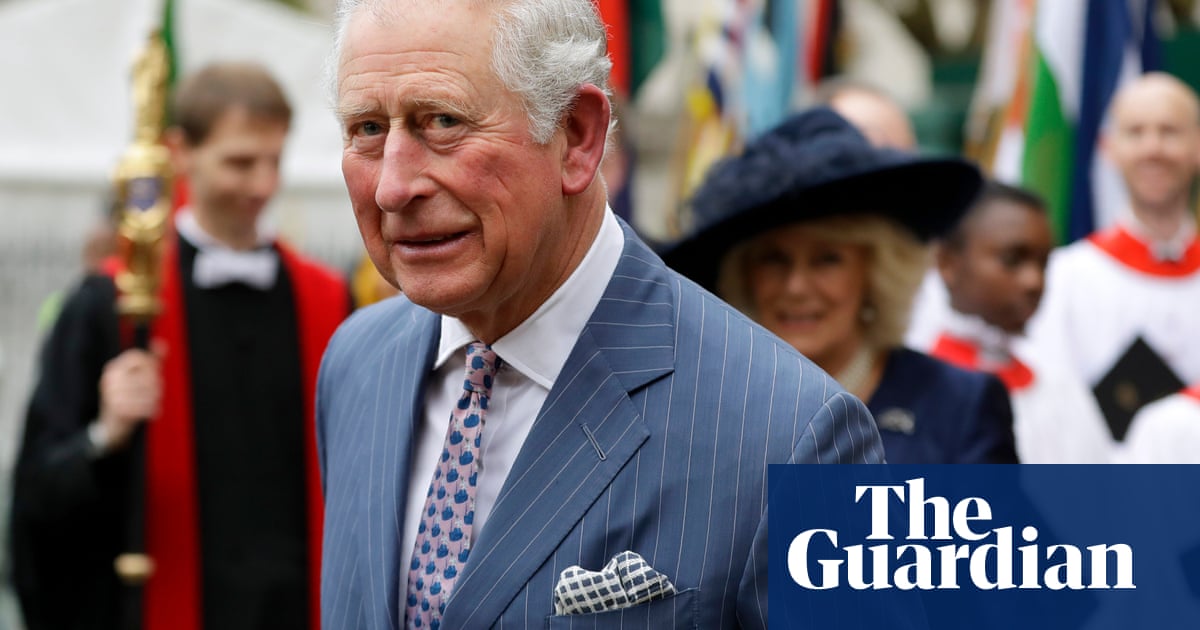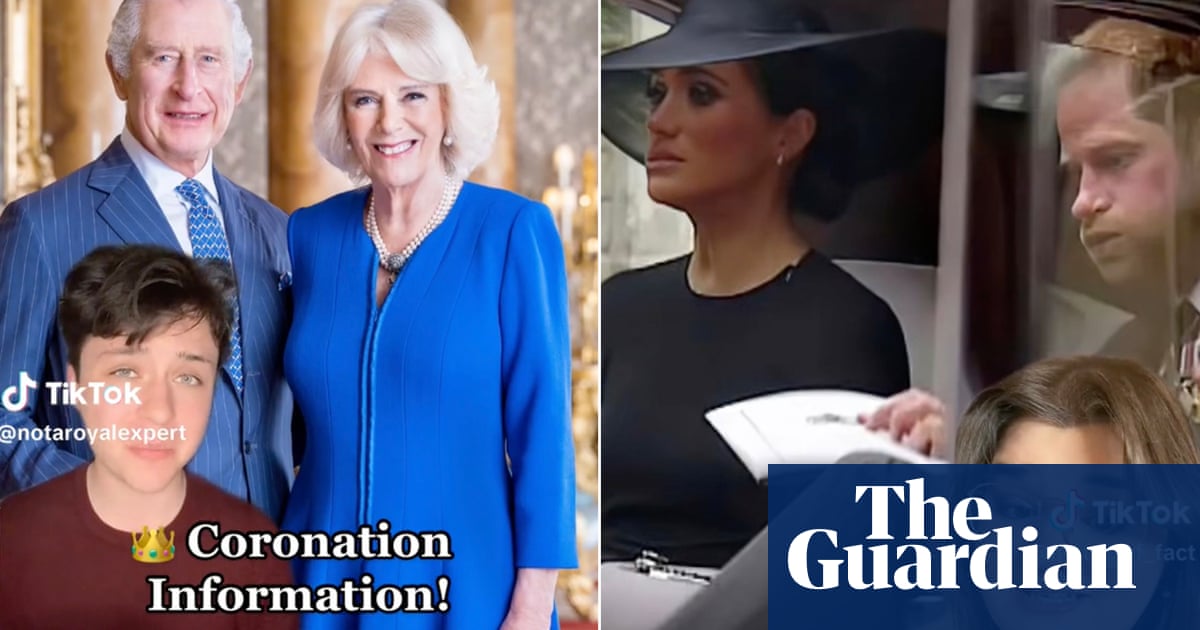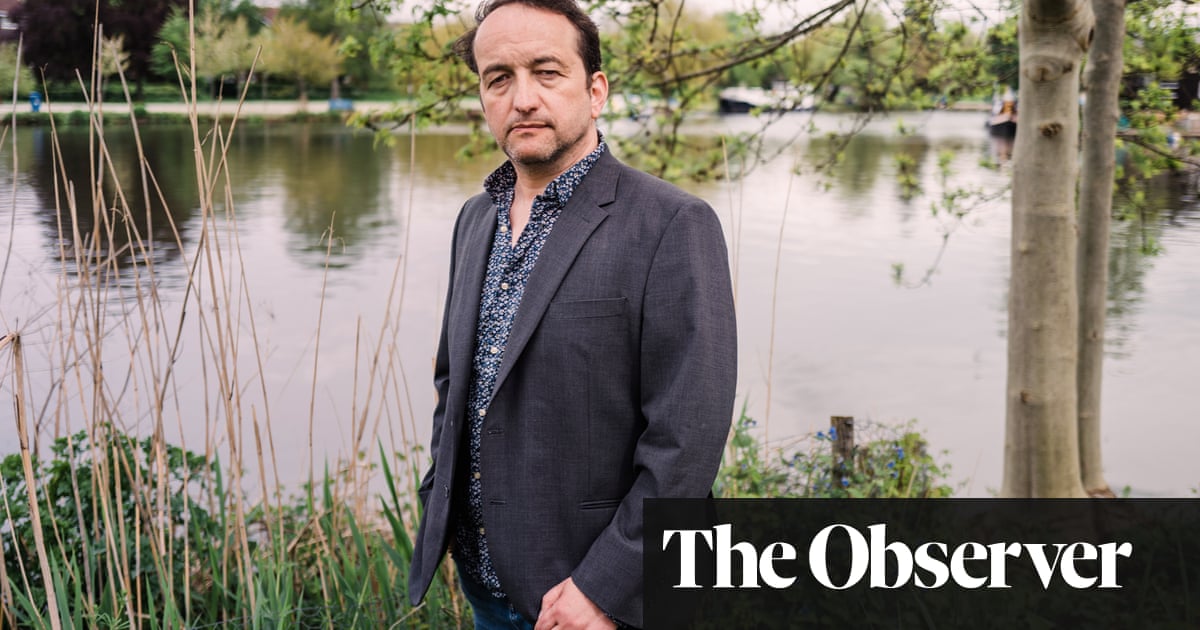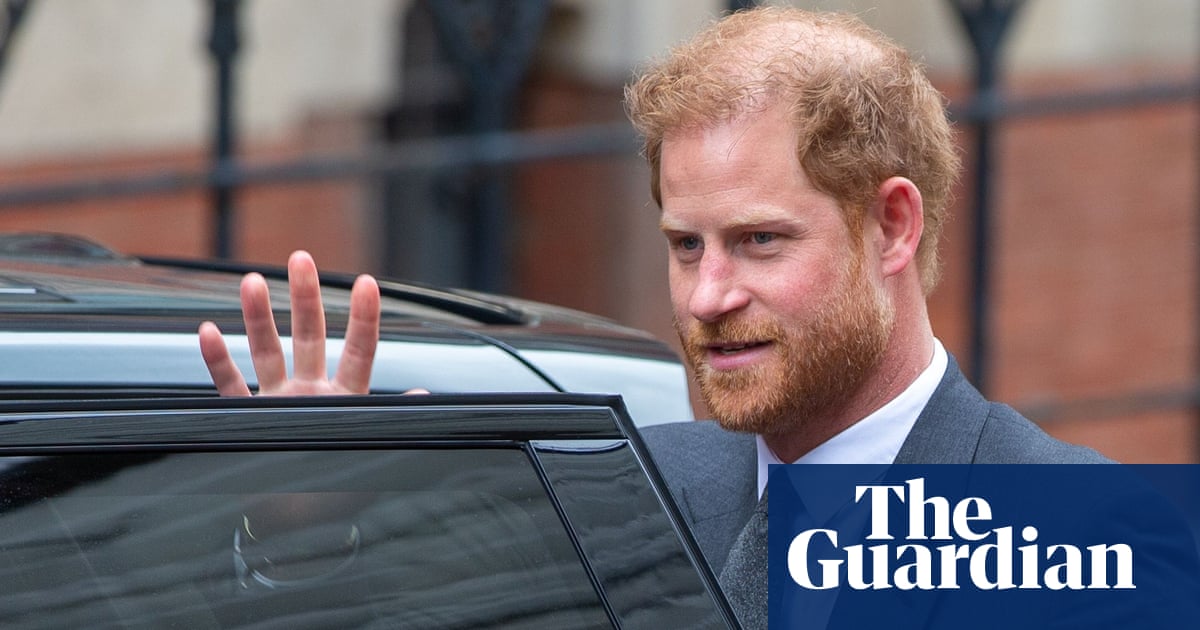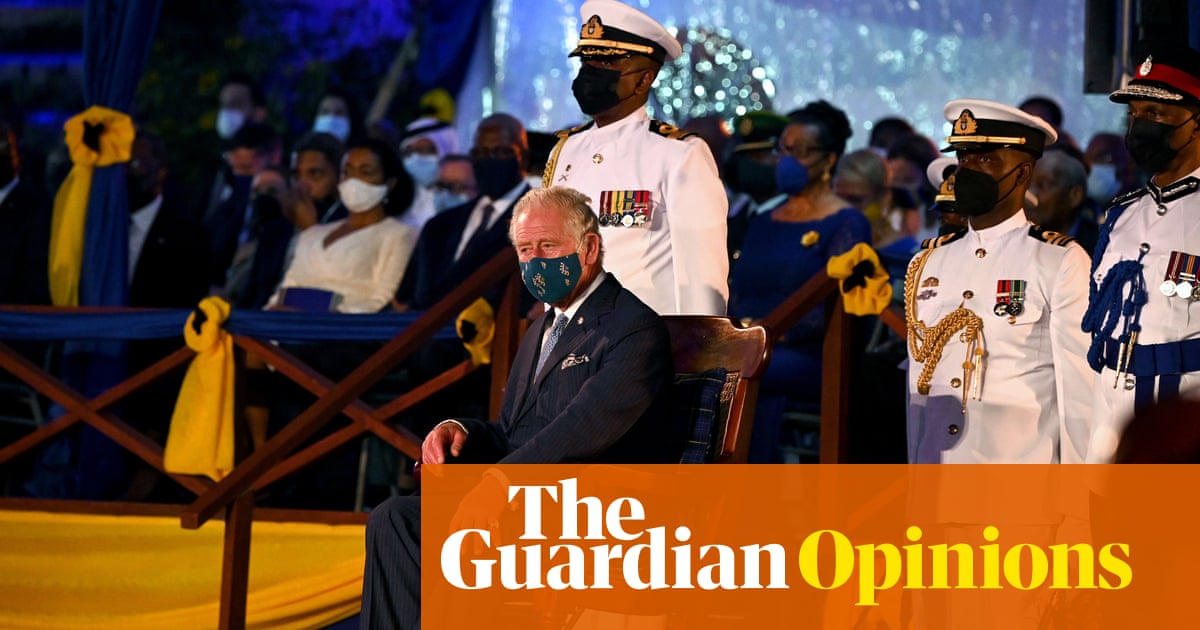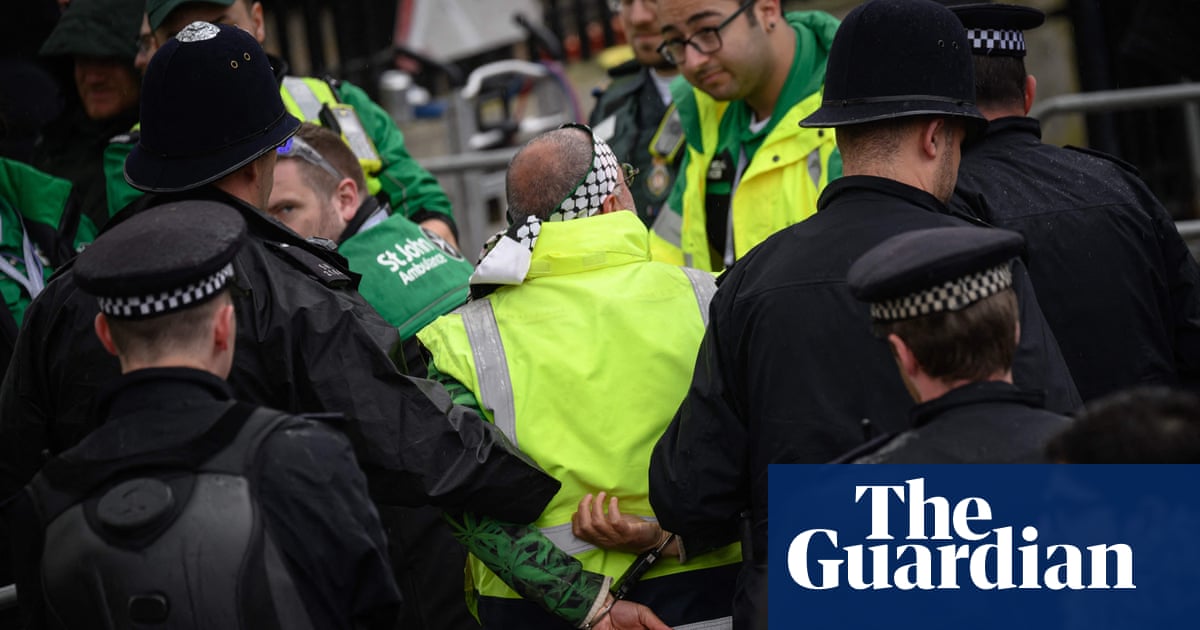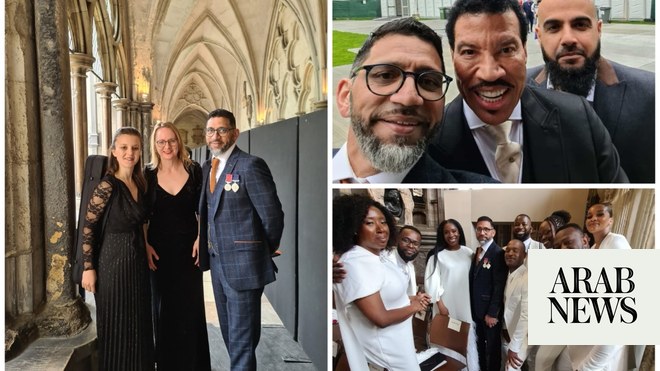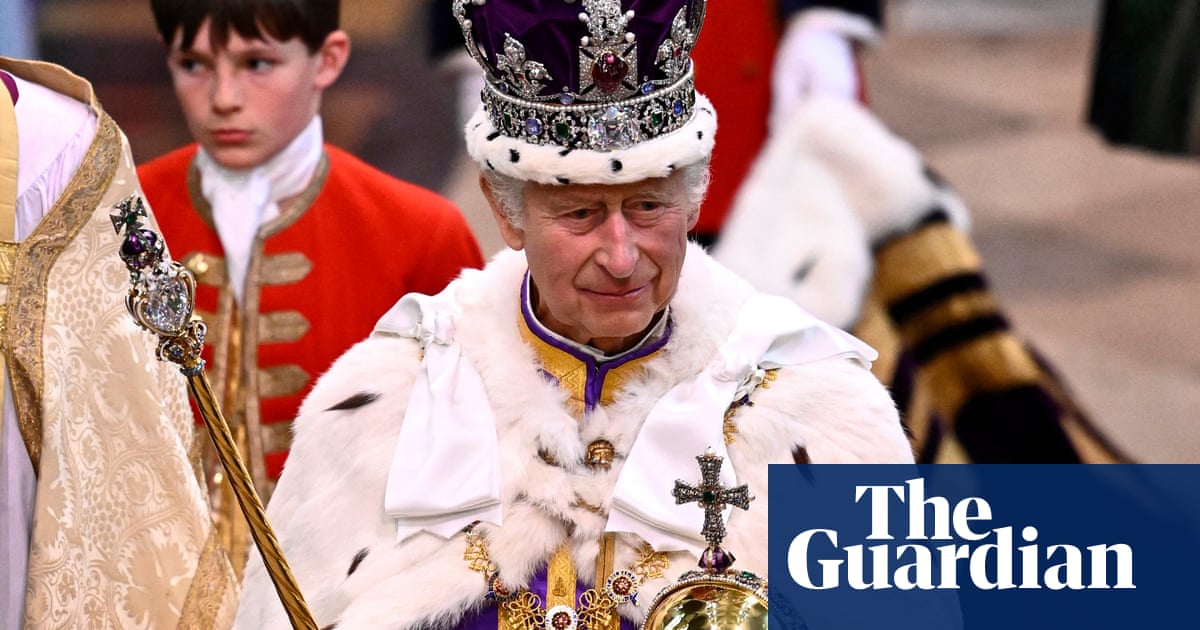
British television channels agreed to let Buckingham Palace censor television coverage of King Charles’s coronation, according to the former boss of Sky News.
John Ryley, who stepped down in May after 17 years, said the monarchy imposed “extraordinary restrictions” on channels covering this year’s ceremony, including demanding the “Orwellian” right to retrospectively ban footage after it had been broadcast.
Reading from an agreement between the palace and broadcasters marked “private and confidential”, he told an audience at the Steve Hewlett Memorial Lecture how the palace controlled coverage: “The royal spin doctors had the opportunity to censor any pictures from the coronation before they could be replayed on the day … And the royal spin doctors dictated which clips of the footage could be shown in future broadcasts in what they called with an Orwellian phrase: ‘a perpetuity edit’.”
Ryley’s decision to speak out has broken the omertà around the secret agreements between British television and the royal family over coverage of formal events. His comments confirm many details previously reported in the Guardian about how Buckingham Palace controlled coverage of Queen Elizabeth II’s funeral and King Charles III’s coronation.
This included a WhatsApp group where royal courtiers would tell senior editors at the BBC, ITN, and Sky News in real time if the royal family wanted specific pieces of footage removed from circulation.
Ryley told the audience in London the royal family regularly escaped real scrutiny by broadcasters.
He said he regretted that Sky News made the “bad decision” to provide Prince Charles with a full list of questions before an interview with the future king in 2017: “If a viewer had interrogated us about whether that was entirely in keeping with our core values of being honest with our audiences it would have been hard to mount a robust defence. Imagine submitting a list of questions to a top politician or business leader. Maybe in a puppet state.”
In his speech – in memory of Hewlett, the broadcaster and writer who died in 2017 – he demanded more scrutiny of the royal family from British journalism, saying broadcasters were now “too supine … too incurious … too compliant” when it comes to the monarchy: “Topics such as why King Charles didn’t pay any inheritance tax on the fortune he inherited from his mother or the fact the Duchy of Cornwall doesn’t pay capital gains tax should be examined properly. The reporting needs to be far more rigorous.”
He also explained how Buckingham Palace reacts when journalists try to ask questions directly to royal family members: “You already know – perhaps you don’t – that spin doctors at the royal palaces freak out when a broadcast journalist doorsteps a member of the royal family. Haughty emails, phone calls, and even a summons for a head of news to a meeting can swiftly follow. I’ve experienced this treatment.”
Ryley also said that British news providers spent too long focusing on London-centric Westminster political intrigue rather than the impact of policies on the wider country.
He also criticised moves by advertisers to boycott the right-wing GB News channel, which is facing multiple Ofcom investigations, has broadcast Covid disinformation, and has been accused by Jewish groups of indulging antisemitic conspiracy theories.
The former Sky News boss said the advertiser boycott was a “threat to free speech” in Britain: “The new news channels have been launched to satisfy an increasing thirst in the UK for a diversity of opinions. It’s an awkward fact for some. GB News’s audience is growing … The British public have the right to hear the full range of political perspectives. The advertising boycott of GB News should end. It is an insult to the British people.”




